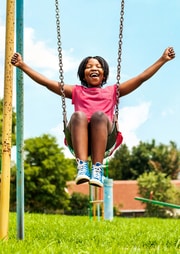5 Digital Resources for Fighting the Stigma of Mental Illness in Kids and Teens
The topic of mental health has never been more relevant in public discourse, but one group of people still aren’t getting their due attention: children. The mental wellness (or lack thereof) of today’s kids and teens will determine humanity’s future, so it’s imperative that we shed more light on the mental struggles of those age groups.
Here are five digital resources you should try to fight the stigma of youth mental illness and foster a supportive environment for kids who need help.
1. Coping Skills for Kids
Kids have trouble expressing their mental states because they don’t have the maturity or experience to know how they should react. As a result, they often resort to emotional outbursts that leave their mental health worse off than before. The usual response to a child’s meltdown is to let them get the emotions out of their system, followed by an obligatory “calm down” https://www.safesearchkids.com/5-digital-resources-for-fighting-the-stigma-of-mental-illness/from the parents and possible punishment.
However, a tantrum might be more complex than adults think. It could be a cry for help and a sign of deeper problems. Adults must demonstrate proper coping skills so kids can avoid future outbursts and channel their emotions in a more constructive way. That’s where “Coping Skills for Kids” comes in.
“Coping Skills for Kids” has many mindfulness resources to help children calm down and voice their feelings. Teaching kids healthy coping skills early on will help us understand and appreciate what they’re going through and find a solution before it leads to more mental decline.
2. Anxiety Relief (Psych Central)
Anxiety is the second-most prevalent mental condition among children after ADHD, but it’s also the most misunderstood condition. Parents might see common symptoms of anxiety in their children – irritability, constant worrying, trouble concentrating, sleeping problems, etc. – and assume they’re simple growing pains that all kids experience.
All kids have their emotional and behavioral pitfalls, but that doesn’t mean you should brush off the telltale signs of anxiety so easily. Instead, you should help your children seek anxiety relief with resources from Psych Central. This site has guides to help parents flesh out their kids’ anxiety along with quizzes and inspirational stories.
These resources also help parents improve their awareness of anxiety, depression and other common mental issues. Identifying the symptoms before they cause further damage is crucial to a child’s healthy development.
3. The Media and Body Image (Mirror-Mirror)
TV, the internet and social media have had disastrous effects on youth body image. Kids are exposed to supermodels, professional athletes and other idealized versions of people from a young age, establishing unrealistic expectations and causing harmful body image disorders – body dysmorphia, anorexia and bulimia, to name a few.
Although we usually associate body image issues with girls, boys are just as susceptible. Boys are just less likely to ask for help than girls due to long-standing social norms. This problem is one of the many stigmas about youth mental health that need addressing.
Mirror-Mirror is a platform that highlights the causes and effects of body image disorders – both in boys and girls. The site excels at demonstrating the media’s various tactics and how young people respond to them. This information is crucial for parents, as they must monitor what their children watch and take swift action to eliminate harmful content that might lead to mental health issues.
Excessive media consumption is bad for a child’s development no matter what they’re watching. As the adult who controls what your kids consume, you must do your part to deconstruct the false reality that the media has built. Mirror-Mirror can help you along the way.
4. Recognizing Learning Disabilities in Teens (Parenthetical)
People have raised many valid criticisms about the modern education system, but we don’t pay quite as much attention to the students within the system. Learning disabilities are also much more prevalent in kids and teens than we realize. Some studies estimate that one in five students has a learning disorder and millions of cases go unidentified.
Rather than placing full blame on the system, parents and teachers must pay more attention to spot learning disabilities and provide students with a more suitable educational setting. “Parenthetical” from the University of Wisconsin-Madison provides resources to help adults recognize learning disabilities in teens and tweens.
UW is one of the best schools for psychology in the U.S., often collaborating with the National Center for Learning Disabilities to carry out research. Parenthetical is a blog with information from both organizations to educate adult mentors about youth mental disorders and the best ways to deal with them.
5. Erika’s Lighthouse
Continuing with the emphasis on learning and education, Erika’s Lighthouse is a non-profit organization that raises awareness about youth depression through programs in school communities. These programs are built on four pillars:
- Classroom education
- Teen empowerment
- Family engagement
- School policy and staff
Early identification and intervention are vital for helping young people address their mental struggles, but this task can look different as kids get older. Erika’s Lighthouse covers specific age groups, moving from introductory programs about depression to deeper discussions about body image, suicide and other topics that become more relevant in the teenage years.
These programs also connect family life with school life. Ending the stigma around youth mental health requires close collaboration between parents and teachers, and Erika’s Lighthouse gives you the resources to do so.
Keep Fighting the Good Fight
Today’s children face extreme pressure from parents, schools and the media. The only way we can improve their collective mental health is by rethinking all three factors. These five resources will help you keep fighting the good fight and create a more supportive world where kids can be open and honest about their mental health.
About the Author
 Ava Roman (she/her) is the Managing Editor of Revivalist, a women’s lifestyle magazine that empowers women to live their most authentic life. When Ava is not writing you’ll find her in a yoga class, advocating for her children or whipping up something delicious in the kitchen!
Ava Roman (she/her) is the Managing Editor of Revivalist, a women’s lifestyle magazine that empowers women to live their most authentic life. When Ava is not writing you’ll find her in a yoga class, advocating for her children or whipping up something delicious in the kitchen!





 Explore the Safe Search Engine -
Explore the Safe Search Engine -